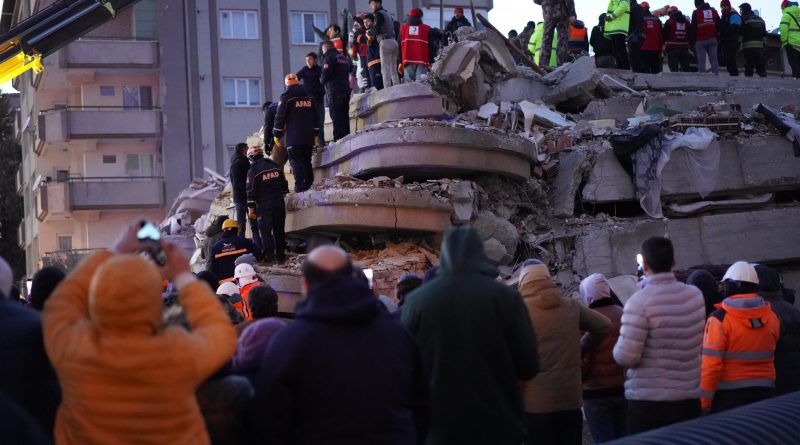Aftershocks Continue in Türkiye-Syria as Aid Deliveries Continue
David Babigian
Staff Writer
The death toll from the earthquakes that struck Türkiye and Syria in February has risen to over 50,000, reports Al Jazeera. In Türkiye alone, 44,218 people have been killed, and nearly 18,000 people have been injured. In Syria, the death toll is 5,914, with over 1,000 injured. Over 1.2 million people have been affected by the disaster, with over 500,000 people in need of humanitarian assistance. The earthquakes have caused significant damage to infrastructure, homes, and businesses, leaving many people without basic necessities such as food, water, and shelter. The number of people affected is expected to rise as the full extent of the damage becomes clear.
As Türkiye was still recovering from the earthquakes in the beginning of February, a new, magnitude 5.6 earthquake struck eastern Türkiye on February 27. This caused significant damage to buildings and infrastructure in the eastern city of Elazig, Al Jazeera reports. The quake was also felt in neighboring province of Malatya and the city of Diyarbakir. The aftershocks have caused further destruction to buildings and infrastructure, and have left thousands of people homeless. The Turkish government has declared a state of emergency in the affected areas and is providing aid to those affected.
U.S. Geological Survey (USGS) structural engineer Kishor Jaiswal told CNN that Türkiye has experienced significant earthquakes in the past, including an earthquake in 1999 which mainly affected the southwest part of the country and killed more than 14,000 people. He said that due to that earthquake, many parts of Türkiye have regional building regulations to ensure construction projects can withstand these types of events. Yet, according to Jaiswal, not all buildings have been constructed in accordance with the current Turkish earthquake regulations. Many buildings could not resist the severity of the shocks because of flaws in the design and construction, especially in older ones.
As soon as the earthquakes devastated the region, foreign aid began to pour in. Many aid-based organizations have pledged money and resources to help those affected. UNICEF alone has distributed winter clothes, electric heaters and blankets to nearly 277,000 people affected by the earthquake, including over 163,000 children. However, the aid relief effort has not come without its challenges. In Syria, there are many controversies surrounding how the Assad regime is reacting to this crisis. In an effort to end its decade-long period of global isolation due to sanctions, President Bashar Al-Assad has exaggerated the urgent need for earthquake relief aid, claims the Soufan Center.
This disaster provided Assad with an opening to ingratiate himself to the United Nations and the global community. Ninety percent of the 4.4 million people who inhabit the region in northwest Syria, which is continuously bombed by President Bashar Al-Assad’s forces, depend on humanitarian supplies, according to the NBC News. A large influx of humanitarian aid could lead to issues such as aid diversion or weaponization by the Assad government. It is important to ensure that these resources are properly distributed to the population that has been devastated by these events.
The has asked for over a billion dollars to help survivors in Türkiye and Syria. They appealed for nearly $1 billion to help more than 5 million people in Türkiye and about $400 million for the parts of Northwestern Syria that were devastated by the earthquakes. On February 19, the United States announced that it would provide $100 million in additional assistance for the people of Türkiye and Syria as the humanitarian crisis deepens. With the international community focused on the disaster relief efforts in Türkiye and Syria, it is the hope of all that the relief efforts will minimize the long-term devastation of these unfortunate events.


